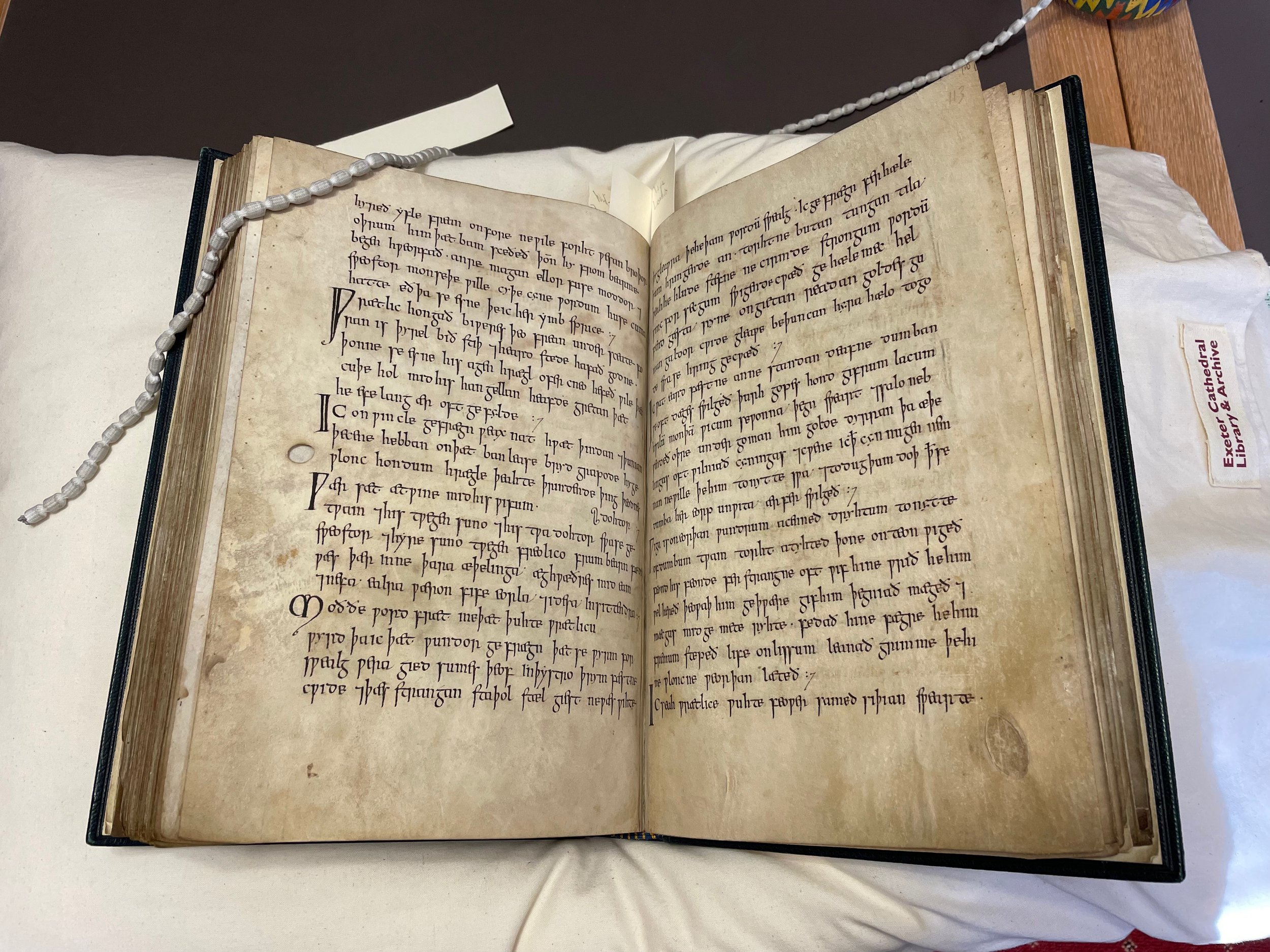
Exeter
The Exeter Book
Exeter’s 1,000 years of unbroken history around reading and literature starts with the largest known collection of Old English literature still in existence: the Exeter Book. Donated to the Exeter Cathedral library in 1072, the volume is a 10th-century anthology of Old English poetry and riddles that predates Beowulf. In 2016, UNESCO added the manuscript to its Memory of the World Register of artefacts of ‘global cultural significance’.
Photographs provided by the Exeter City of Literature Team.
-
The Exeter Book contains 40 poems such as elegies The Wanderer and The Seafarer.
Ezra Pound’s poem The Seafarer is considered an interpretation of the first ninety-nine lines of the Exeter Book’s poem by the same name. It tells of an aging seafarer looking back on his life.
J.R.R. Tolkien also drew inspiration from the Exeter Book. In the poem “Christ I” the following lines can be found: “Hail Earandel brightest of angels/ over Middle Earth sent to men.” These lines have been claimed by some to be the origins of Tolkien’s creation of Middle Earth and his character Eärendil.
Translations from the Exeter book are available today in various collections of early Anglo-Saxon poems such as The First Poems in English (Penguin Classics).

-
It is the Riddles from the Exeter Book that are still such a source of mystery and inspiration. While some remain unsolved, the majority are translated in Kevin Crossley-Holland’s The Exeter Book Riddles . The Riddles are part of the fabric of the city even today: Crossley-Holland’s translations are engraved in glass as part of The Riddle Sculpture by Michael Fairfax, which has stood on Exeter’s high street since 2005; Richard Skinner’s riddle from The New Exeter Book of Riddles was engraved and cast in the pavement on the high street; author Philip Reeve wrote an exclusive short story The Exeter Riddles for Animate Exeter in 2013; Double Elephant Print Workshop created an interactive animation Riddle 57 in 2019; and, in 2022, Exeter Cathedral appointed the first ever Riddler in Residence, Chris White, who will be exploring the riddles with a new generation of creative minds.

The River Dart
The River Dart is one of Devon’s most famous waterways, with two sources on Dartmoor flowing down to Dartmouth (passing Agatha Christie’s Greenway House)!
Image credit: Dave_S. https://www.flickr.com/photos/david_e_smith/41944658341
Dart
In 2002, poet Alice Oswald won the T.S.Eliot prize for Dart (Faber), a collection that combines prose and poetry to chart the course of the River Dart from one of it’s two sources – Cranmere pool on Dartmoor – to the sea at Dartmouth. Living and working as a gardener at the Dartington Estate, Oswald spent three years in conversation with people who live and work on the river, recording a ‘poetic census’; she has described Dart as her homage to those people and to the river itself.
Weaving Devonian mythical characters and poetic craft, Dart renders some of Devon’s most beautiful landscapes with a touch as gentle and alive as the river itself.


